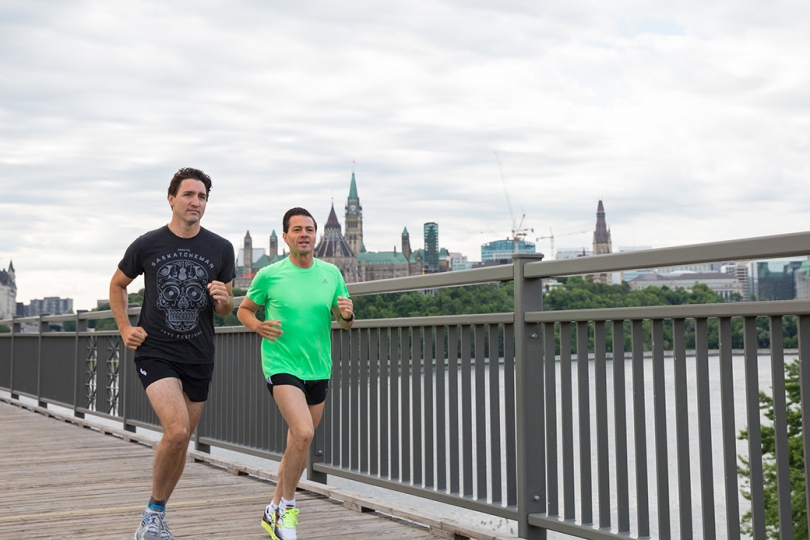Like this article? rabble is reader-supported journalism. Chip in to keep stories like these coming.
Canadians of all political persuasions care about climate action. Watching Canada fall behind the rest of the world over the past 10 years has been deeply disturbing to many. We became climate laggards. We yearn to be leaders.
The hope that Canada would act on scientific evidence and contribute to climate solutions was bolstered when Justin Trudeau became prime minister in late 2015. He quickly announced he would personally go to Paris for the December climate negotiations. He gave his new environment minister, Catherine McKenna, the expanded title of “minister of environment and climate change,” and sent her to COP21 with instructions to make Canadians proud. He even convened all the premiers before Paris to review the latest climate science.
Minister McKenna took a decisive position in the Paris negotiations, making Canada the first industrialized country to raise the stakes in the treaty negotiations. She rightly took the position that the world had to move to hold global average temperatures to no more than 1.5 degrees Celsius above pre–Industrial Revolution levels rather than the 2 degrees Celsius set during earlier negotiations. Once Canada moved, the world followed.
By March, Prime Minister Trudeau had assembled provincial and territorial premiers once again, to start work on a plan for carbon pricing and advancing clean technology.
In June, he joined the presidents of Mexico and the United States in committing to begin reducing fossil fuels in the electricity grid, and to work together throughout North America to reduce methane (a potent greenhouse gas) in oil and gas production, among other pledges.
So, how much better is Canada’s climate target than before the Liberals swept to power? Astonishingly, not one bit. Despite all the activity that has taken place, Canada is ignoring its greenhouse gas emissions reduction goal. The Paris Agreement doesn’t include individual national promises. Those have been made and tabled with the UN climate secretariat. Canada’s target was tabled in May 2015 by former environment minister Leona Aglukkaq. It’s the weakest in the G7. Of course, the previous government made few plans and took no steps to hit its mark. But the Harper government’s goal of reducing emissions 30 per cent below 2005 levels by 2030 is still Canada’s target. So while the premiers are building a plan, they’re building it to hit the old, weak target.
Canada’s leadership in getting the world to agree to hold global average temperature to 1.5 degrees will come to nothing if our current levels of commitment remain in place. In fact, the impact of the aggregate of actions pledged to date by all nations — assuming all countries hit their targets on time — will not be to hold global average temperature to 1.5 degrees Celsius. Those actions will not hold temperature to 2 degrees Celsius. The impact of hitting current targets on global average temperature ranges from 2.7 to 3.5 degrees Celsius.
Unless the current round of targets is withdrawn and replaced by more ambitious actions — something called for in the Paris Agreement as “ratcheting up” — we’ll lose any chance of keeping Arctic ice at the pole, which will set off feedback loops that will accelerate global warming. Cascading events of greater severity will become unavoidable.
These levels of global average temperature increase are beyond catastrophic. Low-lying island states will be condemned to sinking below the rising sea level. Increasingly persistent and severe droughts and floods will force millions from their homes and have devastating impacts on food and water supplies. And we will run a growing risk of passing thresholds in the atmosphere that amount to a point of no return. Human civilization cannot withstand runaway global warming.
Given the scale of the threat, how do we get our new prime minister to do the right thing? We have to demand it of him. We have to put the question of Canada’s domestic target back on the table. We have to call out those who claim Harper’s target is too tough to meet. Now is when we need to encourage, cheer and pressure our prime minister to step up — for my grandchildren, for his children and for all of us. I believe he can do it. But we have to speak up. If enough people raise their voices, government representatives have to listen.
Learn more at www.davidsuzuki.org.
Like this article? rabble is reader-supported journalism. Chip in to keep stories like these coming.



